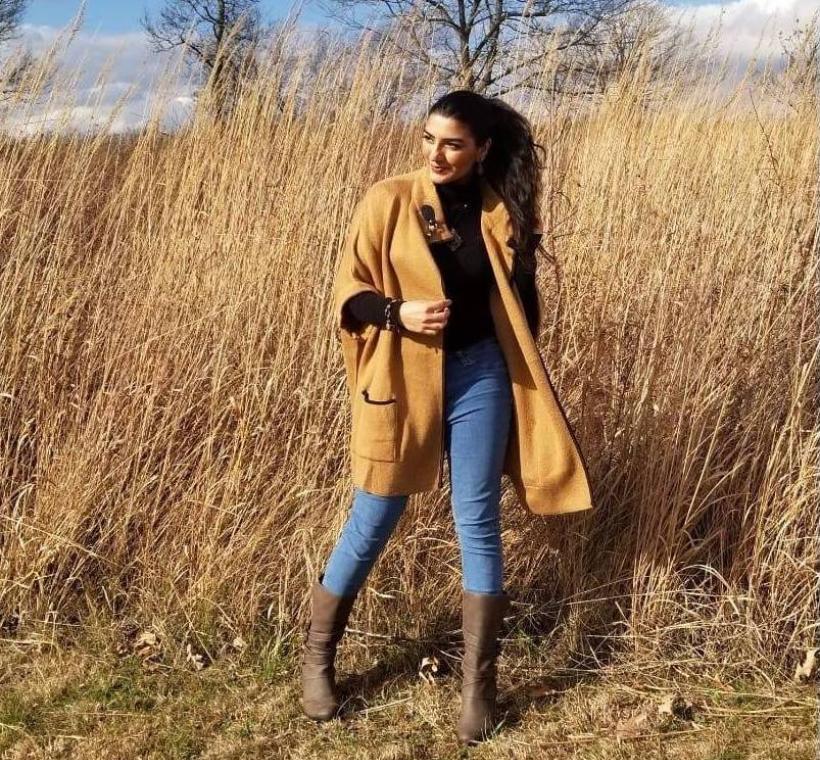
Nidhi Shastri
Tell us about yourself:
I am an independent podcast writer, host and producer from Chicago, IL. After graduating from the University of Illinois in 2019, I worked as a campaign organizer for healthcare justice and equity during the COVID-19 pandemic. My podcast, Model Minority: Uniquely American (released in 2020) stems from my own experiences of growing up as an Indian American woman in the States. My goals are to pass the mic to other Asian, African and Middle Eastern Americans to share their stories, and to also use the podcasting platform as a medium for educating and inspiring social change.
A piece of yours or project (in any medium) that you'd like to share.
Model Minority: Uniquely American - Episode 9: Documenting Our Histories
For this episode, I wanted to showcase various storytellers in the Middle Eastern, African and Asian American communities. Growing up, I was always inspired by people who have taken media into their own hands - such as youtubers and content creators - to help reshape how society views their different communities. So, in this episode, I pay homage to people like Corkey Lee, the freelance Asian American photographer who unfortunately passed away from COVID-19 this year. Then, I highlight different activists, journalists and researchers to hear why they do the work they do, and why it matters that we are able to tell our own stories in our own ways.
What draws you to storytelling?
As the child of Indian immigrants, I grew up on the stories my mother told me. On cold Chicago nights, she would cook a warm meal of beans and rice for dinner and tell our family Indian folktales in Gujarati, our native language. My favorite story was that of a young boy who got lost in the jungle and came face to face with “Sher-Khan,” a king tiger. She’d impersonate the growling tiger’s voice and tell us how the boy luckily found his way out of the jungle by following the smell of his mother cooking beans. On other days, she would recount popular Hindu myths, such as the stories of Hanuman and his cousin Bheem — which always ended with a lesson about life.
Through my mom, I’ve learned to understand that stories are what allow us to curate empathy in ourselves and others. They bring us together on cold nights, and help us better understand the world around us. Storytelling is a medium that appeals to the most human parts of us, and that is what draws me to it.
What excites you the most about being a New Voices Scholar?
As someone who started in this field independently, I really value the network and resources given to New Voices to help guide our paths. Things like mentorship and technical skills are hard to find when you’re first starting out, so NV’s has been crucial for me as a young audio storyteller to finding my footing in this field.
What’s playing on your radio/audio streaming service right now?
Currently listening to “Snap Judgement,” along with relistening to one of my all time favorites, WNYC’s “There Goes the Neighborhood.”
What’s the most underrated tool (technical or not) that you use in your creative process?
Sticky notes - both digital and real. A lot of what I own is covered in sticky notes on which I’ve jotted down random ideas, important clarifications, to-do lists and so on. The power of writing down those fleeting thoughts from your head throughout the day is immense. Plus, the sticky part of the note helps ensure your thoughts will stay put until you come back to it - assuming you remember where you stuck it!
What is something you want to see more of in the industry?
I hope for more solidarity in this industry for young, marginalized voices - especially by those who are already established in the field. There is far too much opportunity and growth in this industry for talented young people to be trapped on their own until they catch a “big break.” I think solidarity needs to come before that - whether it’s through emailing an applicant who didn’t get a role to encourage them to keep going, or offering accessible ways for people to learn industry skills.
Who/What are your radio/audio inspirations and why?
I would say Kai Wright from WNYC is a big inspiration to me - I have always wanted to get in touch with him about how much I admire his work. Additionally, Bethel Habte and B. A. Parker have inspired me with their work at places like Radiolab.
Also, Jesse Dukes from WBEZ’s Curious City and Hana Baba of KALW have been two hugely inspirational people to me on my journey - through both the guidance they’ve given me as well as by the incredible work they put into the world.
Finally, my older sister, Devi Shastri, never ceases to amaze me with her thoughtful and impactful journalism at the Milwaukee Journal Sentinel.
Anything else you'd like to add?
I’d love to chat and connect! My email is [email protected], and my Twitter is @nidhis_world. Cheers!